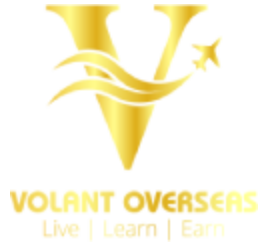This program is a part of family class sponsorship program. A Canadian Citizen and/or Permanent Resident may sponsor a spouse, common-law partner, or Conjugal Partner for Canadian permanent residence under this program. Both the Canadian Citizen or Permanent Resident and the foreign national must be approved by Immigration, Refugees and Citizenship Canada (IRCC) for the sponsored person to receive a visa.
Requirements for the nature of the relationship
Spouse
The Sponsor and the Sponsored Person must be legally married. A Certificate of Marriage from the province or territory where the marriage took place is required if the marriage took place in Canada. Same sex marriages performed within Canada are valid for spousal sponsorship. If the marriage took place outside of Canada, it must be valid under the law of the country where it took place as well as under Canadian federal law.
Common-Law Partner
The Sponsor and the Sponsored Person must cohabit continuously for at least one year, excluding brief absences for business or family reasons.
Conjugal partner
Conjugal partners can be of either opposite-sex or same-sex. A sponsored person is defined as a conjugal partner if:
Program Requirements
Sponsor requirements
Sponsored person (applicant) requirements
Who cannot become a sponsor?
You cannot be a sponsor if you:
Who you can sponsor?
Out land Sponsorship
This is a sub-section of the Family Class immigration category and is pursued when the applicant (sponsored partner) is living outside of Canada. However, it is possible for an applicant living in Canada to apply through the out-land program. This option may permit the applicant to travel in and out of Canada throughout the application process, but it is always discretion of Canadian immigration authority to decide whether the sponsored person may re-enter Canada or not. Out land application is processed through the visa office that serves the applicant’s country of origin or where they have resided legally for at least one year.
IRCC is committed to issuing visas as quickly as possible to rapidly reunite families under this program. IRCC aims to process applications submitted through this program within 12 months.
In land Sponsorship
This is a sub-section of the Family Class immigration category and, is pursued when the couple is together in Canada and the foreign spouse/common-law partner has temporary status in Canada, either as a worker, student, or visitor.
The person being sponsored may be eligible for an Open Work Permit (OWP), allowing to work for any employer in Canada while the sponsorship application is being processed. If the applicant (sponsored partner) already has a work or study permit, he or she may continue to work or study as long as the permit is valid, however it is important to note that working and studying in Canada without valid status are illegal and may result in serious consequences for the sponsored person.
Applicants who wish to obtain an open work permit should apply while they apply for permanent residence. However, IRCC states that if a sponsored spouse or common-law partner has not submitted an application for an open work permit at the same time as their permanent residence application, he or she may still submit an application for an open work permit at a later stage.
If the sponsorship application is refused, the applicant is required to leave Canada immediately at the end of his or her period of temporary stay. Moreover, if the sponsored person leaves Canada at any point while the application is being processed, there is no guarantee that he or she will be allowed to re-enter Canada, especially if he or she requires a visitor visa. IRCC aims to process applications submitted through this program within 12 months.
Processing Time
IRCC processes sponsorship applications within twelve (12) months. Time starts the day IRCC receives a complete application and ends when they make a decision. It may take longer if an application is not complete.
Government Fee
Note
Spouse & Common-Law Sponsorship FAQ
Can I sponsor my relative (e.g. cousin, uncle, aunt etc.) who is not my immediate family member?
No! Family class sponsorship program only allows to sponsor spouses or common-law partners, dependent children, parents, and grandparents. However, you may sponsor any non-immediate family member (e.g. brother, sister, aunt, or uncle etc.) in extremely specific situations.
Can my spouse or common-law partner be allowed to work in Canada while their application is being processed?
If your spouse or common-law partner is living in Canada on a valid work permit, they may continue to work until their permit expires. If they are living in Canada on a valid study or visitor visa, they may be eligible to apply for an open work permit (OWP) that allows them to work while their application is being processed.
My Spouse or common-law partner is outside of Canada. If he/she can apply for a work permit while his/her application is in process?
If your spouse or common-law partner is not living in Canada, they are not eligible to apply for a spousal open work permit. However, if they meet the eligibility criteria for a Canadian work permit, they may apply for a regular work permit while their sponsorship application is in process.
Do I need to meet the minimum necessary income (MNI) requirements to sponsor my spouse or common-law partner?
In most cases, there is no low-income-cut-off (LICO) for spouse, partner, or dependent child sponsorship. However, if either a spouse or partner you are sponsoring has as dependent child who has dependent children of their own, or a dependent child you are sponsoring has a dependent child of their own, you must meet a minimum LICO score, which is determined by the Canadian Government each year.
Do I need certain amount of money or a job offer to sponsor my spouse or common-law partner?
No! You do not need to demonstrate a minimum amount of income/money or a job offer to sponsor your spouse or common-law partner. However, you must sign an undertaking, in which you promise to provide financial support for the basic needs of your sponsored family member.
The length of the undertaking depends on the category of sponsorship. For spousal sponsorship (including spouses and common-law or conjugal partners), the length of the undertaking is 3 years from the day the sponsored individual becomes a Canadian permanent resident.
I am adopting a child. Do I need to wait until the adoption process is finalized for including child in the sponsorship application?
No! You can begin sponsorship application if the adoption process is in the final stages.
What is marriage of convenience?
A marriage of convenience (MOC) is a marriage where the sole purpose is to let the sponsored spouse immigrate to Canada. If the visa processing officer reviewing the application determines that your relationship is a marriage of convenience, your spousal sponsorship application will likely be refused. Marriages of convenience constitute marriage fraud and may result in criminal charges.
What is the application processing time for spouse or common-law partner sponsorship applications?
Spousal sponsorship applications are typically processed within 12 months.
Does IRCC recognize marriages conducted by proxy, telephone, internet, and fax?
No! IRCC do not recognize these types of marriages. If one or both parties are not physically present at the ceremony, IRCC will not recognize the marriage.
You may be exempt from this rule if:
What is a complex permanent residence application?
Your application may be more complex if:

